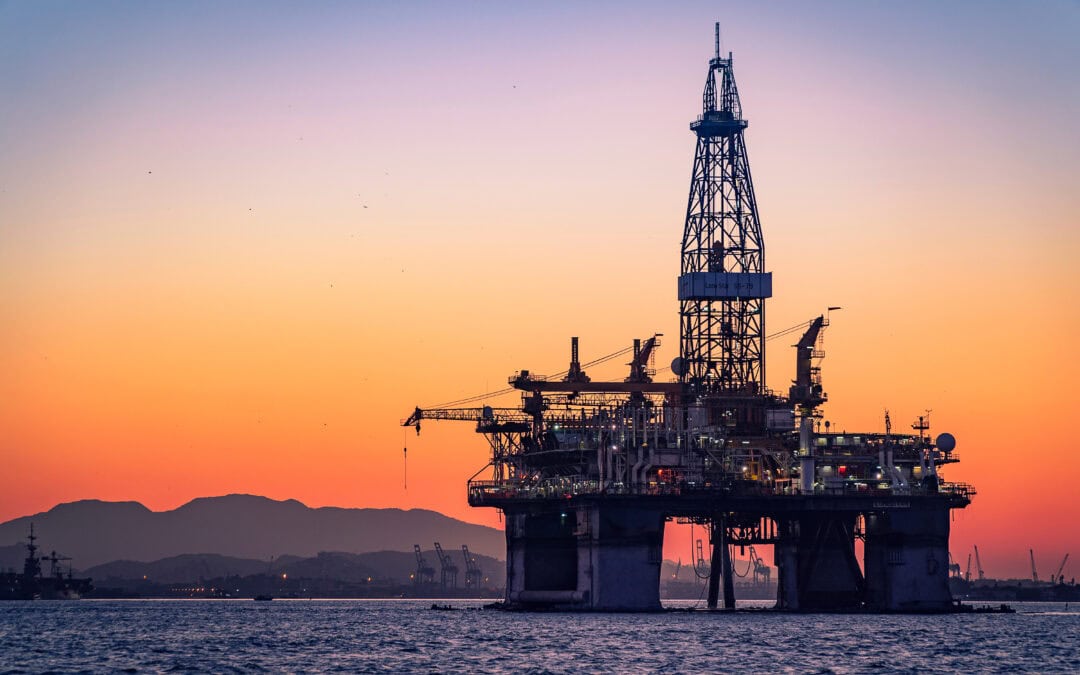Working on an oil rig is a job that often comes with many hazards and challenges. These offshore platforms operate in remote, harsh environments where the smallest mistake can trigger serious injury or even death. Heavy machinery, shifting weather, and tight schedules all combine to raise the danger level for every crew member.
Beyond the physical risks, oil rig workers face long hours, isolation, and the constant pressure to meet production goals. Even with strict safety protocols, accidents still occur. Understanding these dangers helps workers, employers, and families prepare for and prevent disasters at sea.
What Are the Dangers of Working on an Oil Rig?
Oil rigs sit far from shore, exposed to storms, high waves, and gale-force winds. Crew members must climb ladders hundreds of feet above the water, handle heavy tools, and work around live wells. In this high-risk environment, a single slip or equipment failure can lead to falls, fires, or blowouts.
That’s why oil companies invest heavily in safety measures. Rig operators run regular drills, enforce strict lockout-tagout procedures, and require personal protective gear like hard hats, gloves, and flame-resistant clothing. While these steps reduce risks, they can’t eliminate every hazard. Continuous training and a strong safety culture remain critical to protecting lives.
Physical Hazards
The most obvious risks on an oil rig involve heavy machinery and complex drilling systems. Workers handle drill pipes, winches, and high-pressure hoses that can pinch, crush, or sever limbs. Falling objects pose another threat when crew members work on elevated platforms or move equipment overhead.
Explosions and fires also loom large, as oil and gas are highly flammable. A single spark from welding or a shorted electrical line can ignite a catastrophic blaze. Rig crews follow strict hot-work permits and fire watches, but even the best plans can fail under real-world pressures.
Environmental Dangers
Oil rigs operate in open water where the weather can shift without warning. Sudden storms bring towering waves, heavy rain, and lightning strikes. These conditions can stall production or force an abrupt evacuation, endangering workers in their quarters or on the drill floor.
Marine wildlife adds another layer of risk. Birds and sea creatures may collide with rig structures, and waves can sweep debris across work areas. Rigs must maintain constant vigilance, using radar and patrols to spot changing sea conditions and wildlife hazards.
Health Risks
Long shifts—often 12 hours or more—take a toll on physical health. Fatigue increases the chance of errors, slows reaction times, and raises the risk of accidents. Tight quarters and shared living spaces can also spread illness quickly, from common colds to more serious infections.
Chemical exposure poses a hidden threat. Workers may inhale toxic fumes from drilling fluids, welding gases, or crude oil vapors. Over time, repeated exposure can damage lungs, skin, and eyes. Rigs rely on ventilation systems, respiratory protection, and regular health screenings to catch problems early.
Psychological Stress and Related Factors
Isolation at sea can weigh heavily on mental health. Crews spend weeks away from family and friends, often with limited communication options. Constant noise, bright lights, and shift work disrupt sleep patterns and contribute to chronic stress.
High-pressure production targets add emotional strain. Workers who fear retaliation for reporting safety issues may remain silent when hazards arise. This “speak-up” culture gap can lead to preventable accidents. Rig operators combat stress by offering counseling services, fatigue-management programs, and team-building activities.
Working with an Oil Rig Accident Attorney
When a worker suffers harm on a drilling platform, it’s important to consult with an oil rig accident attorney who understands the complex rules that govern offshore work. These attorneys gather evidence, review incident reports, and work with experts in engineering and safety. Their goal is to show exactly how the accident happened and who must be held responsible.
Negligence in Oil Rig Accident Cases
Negligence plays a central role in many oil rig disasters. When companies skip regular maintenance, ignore safety warnings, or pressure crews to meet tight deadlines, they put lives at risk.
To prove negligence, an attorney must show that the rig operator or contractor owed the worker a duty of care, then broke that duty by cutting corners on safety. Examples include missing inspections, failing to provide personal protective equipment (PPE), and giving little to no safety training to crew members.
Once negligence is clear, the attorney links those failures to the worker’s harm. They collect maintenance logs, safety training records, and eyewitness statements to build a strong case. By highlighting each lapse in care, the attorney’s goal is to force the at-fault party to answer for the damage they caused.
How an Attorney Can Assist in an Oil Rig Accident Case
From the first meeting, an oil rig accident attorney crafts a plan to protect the injured worker’s rights. They handle all communications with insurance companies and opposing attorneys. This keeps clients free to focus on recovery, not stressful negotiations.
Attorneys also work with medical experts to document injuries and predict long-term care needs. They calculate lost wages, future medical bills, and other damages. When it’s time to settle or go to trial, they present a clear, well-supported demand for fair compensation.
What to Do After an Oil Rig Accident
Oil rigs will always carry risks, but strict safety standards and constant vigilance can cut down on accidents. Companies must invest in training, equipment checks, and a safety-first culture.
When accidents do occur, timely legal help becomes critical. Don’t face offshore injury claims alone. Work with Talbot, Carmouche & Marcello to tap into our decades of experience protecting the workers and families of Louisiana. Contact us for a free consultation, and let our team guide you every step of the way and ensure you get the justice and support you deserve.

